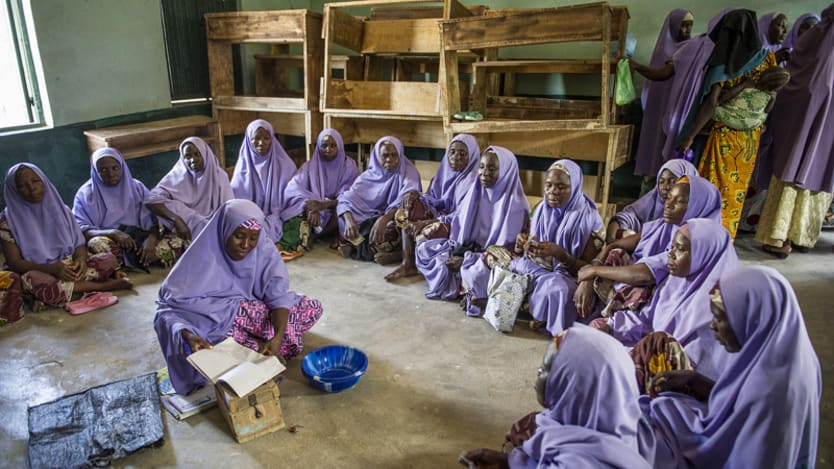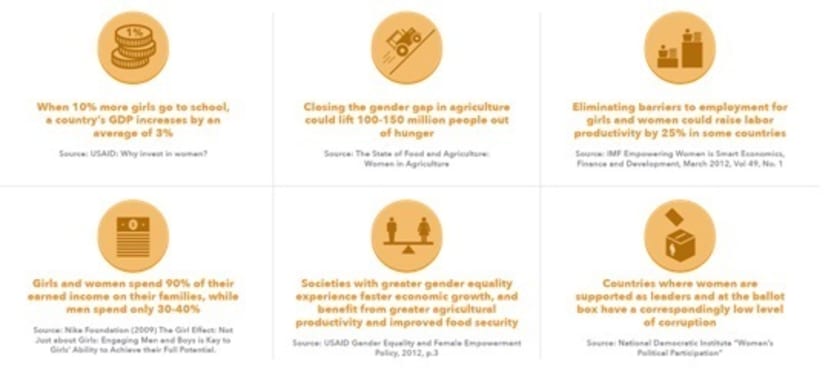
Since the adoption of the Millennium Development Goals, we’ve gathered data and insights that should inform our approach to the next era of development. We’ve learned that traditional financing mechanisms aren’t sufficient; the strongest results follow when multiple sectors work together. And we’ve learned that public backing is essential to securing the funding and political support required to achieve sustainable change. As we prepare to adopt the global goals for sustainable development, we must be more attentive to public opinion and craft tailored, effective strategies that will resonate.
Recently, there’s been much discussion around the fact that public opinion in the U.S. is skewed with regard to how much is spent on foreign aid — including polls conducted by CNN and the Kaiser Family Foundation and a discussion in the 2014 annual letter from the Bill & Melinda Gates Foundation, to name a few — paired with a negative view on how much should be spent.
See more from this series:
► Rallying American support for foreign aid
► The SDGs: How will we know if we achieved them?
► Promoting healthy lives, access to water and well-being for all
► Supporting democracy in closing space
► The hard questions in education: Why and how?
► Where should #globaldev community focus aid to end hunger?
Ipsos’ survey found most Americans place much less importance on the global goals than the general public in other countries. After analyzing the data, one might assume that Americans believe the global goals only target developing countries, and that they are skeptical about financing this effort with, in their view, no domestic benefit. What is clear, however, is that the global goals were always intended to be inclusive of all countries — accessible and universal. We all have a stake in their successful implementation.
Our work at the Vital Voices Global Partnership is guided by the belief that investing in women leaders is the most efficient way to make change, transforming lives and accelerating peace and prosperity for all. Our strategy, honed after more than 18 years of working with leaders, ensures that our targeted investments in single individuals impact thousands more; those thousands multiply that change throughout their networks and communities. Based on this knowledge, we believe that meeting the gender-related targets of the global goals will be the basis of progress for all goals — women are the “silver bullet” to advancing development aims and ending extreme poverty, as U.N. Development Program chief Helen Clark has said.
And we have 20 years of evidence to support this view. Research released by No Ceilings shows that since 1995 we’ve made significant progress in the areas of the Beijing Platform for Action that overlapped with the MDGs, including education and women’s health. This tells us that with the right public support and awareness, the global goals are indeed attainable.
Yet, public support depends on proof that our strategies yield these positive results, that money is being invested wisely, and that our efforts have global significance. As these statistics show, the gender-related targets provide a road map for collective progress:

Gender-related targets can provide a road map for collective progress.
Bringing the global goals discussion to the mainstream and conveying the notion of shared responsibility present challenges, but innovative partnerships may offer solutions. To achieve the change we’re working toward, we need new approaches with input from many sectors. We believe that partners striving to advance the gender-related targets of the global goals can support the platform by:
● Convening a community of stakeholders to share best practices around technical solutions, innovative financing mechanisms and building awareness.
● Collaborating on new partnerships to press for policy and financial commitments.
● Gaining financial and substantive commitments from partners from the private sector, multilateral institutions, governments (both developing and developed), academia, media and NGO leaders.
We know that any solution to meeting the global goals and achieving gender equality must be a collective solution, with requirements that reach beyond financing. By working together, with insight from the women leaders entrenched in these issues, we can systematically and effectively hold ourselves accountable to — at the very least — the gender-related targets of the global goals.
Visit the Ipsos news center to see the data and other articles in this series. Join the Devex community and access more in-depth analysis, breaking news and business advice — and a host of other services — on international development, humanitarian aid and global health.








